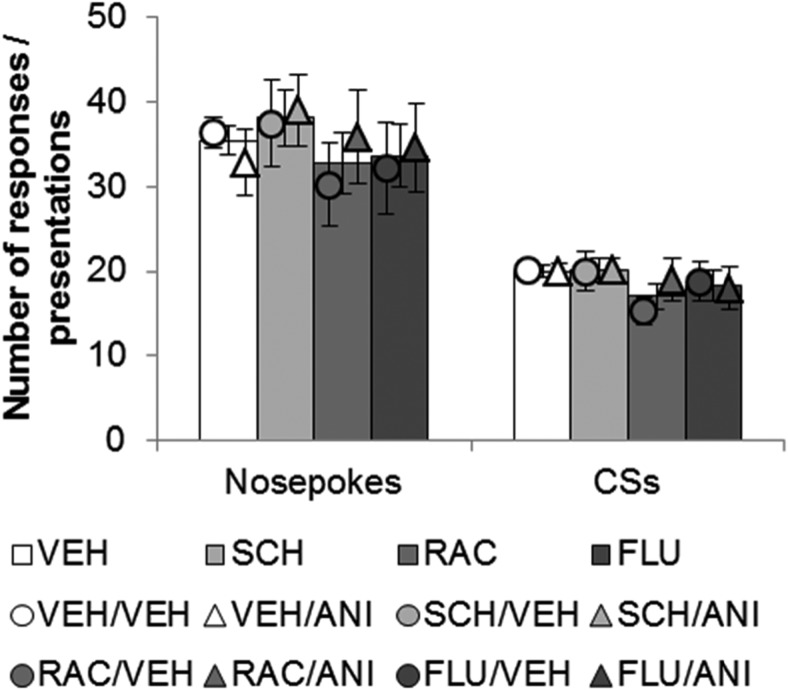Figure 2.
Dopamine receptor antagonism had no acute effects on behavior during the memory reactivation session. There were no differences between experimental groups in the number of nosepoke responses made or the number of CSs obtained during the memory reactivation session. Thus, dopamine receptor antagonism with SCH23390 (SCH), raclopride (RAC), or α-flupenthixol (FLU) did not acutely affect activity or memory retrieval relative to vehicle (VEH). Data are presented as means ± SEM. The bars represent data for all animals receiving the same infusion prior to reactivation; the circles and triangles represent data for the prospective experimental groups, based on the second infusion of anisomycin or vehicle following the reactivation session. Group sizes: VEH/VEH = 26; VEH/ANI = 9; SCH/VEH = 8; SCH/ANI = 6; RAC/VEH = 8; RAC/ANI = 7; FLU/VEH = 5; FLU/ANI = 8 rats per group.

